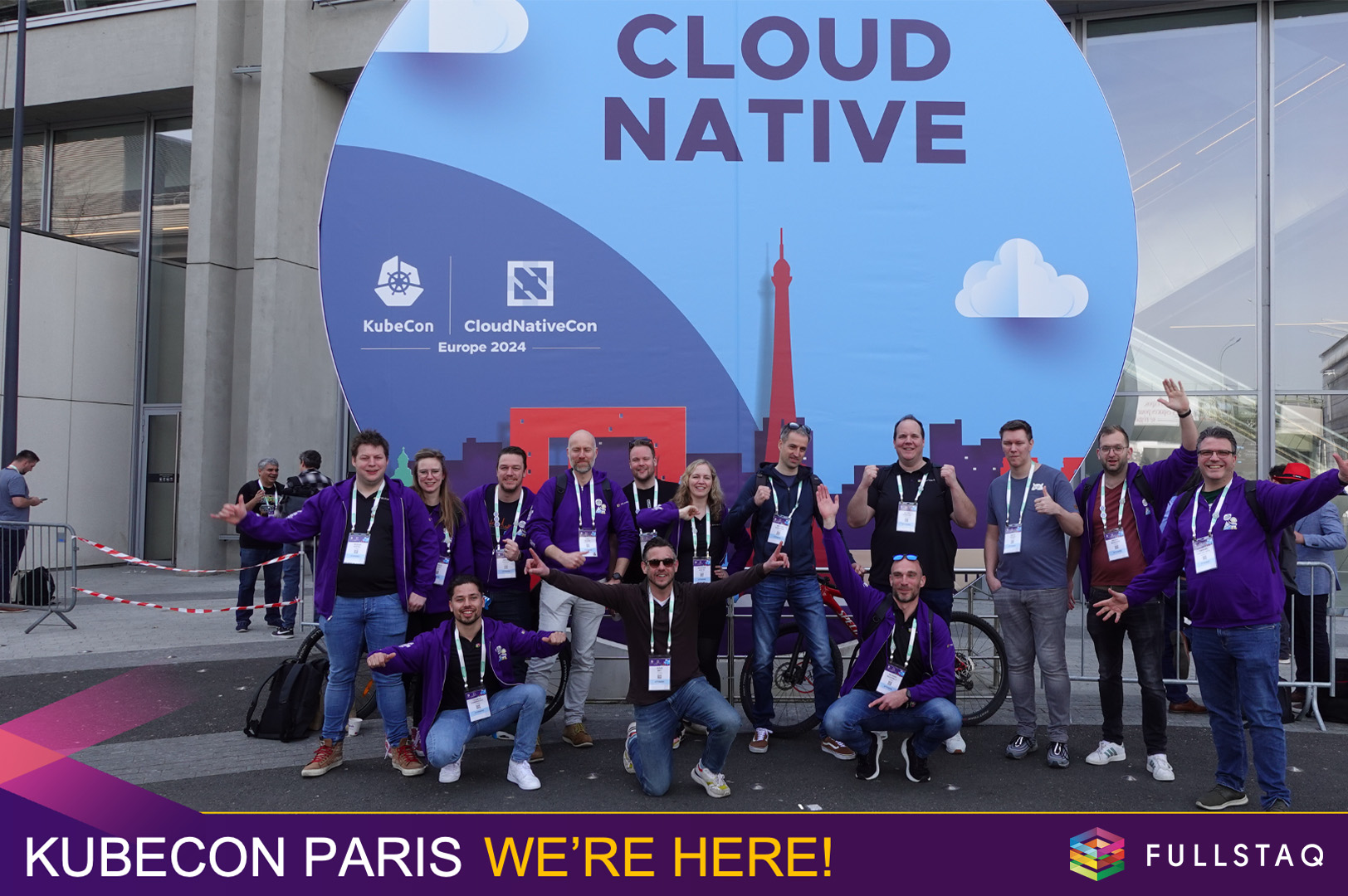
KubeCon & CloudNativeCon means immersing yourself in the realm of open-source cloud-native technologies. This premier cloud-native conference was held in Paris this year, drawing over 12,000 attendees. What are the biggest take-outs from KubeCon & CloudNativeCon if you're working on cloud-native applications? Hint: yes, it's about AI, but that doesn't matter for Kubernetes.
Powered by AI: because it contains AI or because investors want to hear that?
At KubeCon Paris 2024, it was impossible not to hear the word AI! In her opening keynote, CNCF CEO Priyanka Sharma dove right into it. Because of course, what's happening in the rest of the world around AI is also happening in the cloud-native community. There's been a huge demand for AI, and anything running with or on AI is trending. The same goes for cloud-native tools 'powered by AI'. I wonder: is something truly powered by AI because it contains AI, or is it something investors want to hear?
As for AI and Kubernetes: AI can run on it well. It doesn't matter what workloads you would like to run on Kubernetes. In that regard, AI faces the same challenges as 'regular' applications. AI can also leverage Kubernetes advantages: high availability, scalability, agility, and flexibility, all while being technology-agnostic. It runs the same everywhere: whether you're running a fancy web app in the cloud or machine learning in your own data centre, Kubernetes remains the same.
In the landscape of AI, Kubernetes can add significant value. There are already AI workloads running extensively on Kubernetes. At Fullstaq, we help companies like Just Eat Takeaway run AI and machine learning on Kubernetes.
Kubernetes is becoming a commodity
By and large, I hear at KubeCon that Kubernetes is becoming an Operating System (OS), a commodity as a platform. I've been hearing for 2 years now that Kubernetes is becoming a commodity. And the truth is: it already is. Kubernetes is the OS of the entire cloud-native ecosystem.
It's not the first time I've seen a new technology transition from emerging to a commodity. We once moved from Unix to Linux. The latter was all the rage, happening, and free. It propelled the web tech industry forward. So much so that Kubernetes, until a few years ago, was still the new challenger. But not anymore.
We've now finished the game of Kubernetes at a purely technical layer. It's more about the layers around it, the tools from the ecosystem. Think of tools for CI/CD, observability, service meshes, and container runtime.
Kubernetes is no longer just infrastructure, something that system administrators and operations deal with. It's now shifting towards developers, akin to the rise of DevOps about 5 to 8 years ago, to bridge the gap between developers and operations.
Bridging the gap between Kubernetes and developers
The goal of bridging that gap between developers and operations is to make developers comfortable with Kubernetes. To empower them to handle Kubernetes well. The closer a cloud-native tool gets to developers, the greater the chance of success. At KubeCon, I saw two major projects moving in this direction, both big enough to have their own conference.
The first is Backstage by Spotify. With this platform, you can create developer portals yourself, a self-service. Developers thereby get (GUI) access to the infrastructure. They can make adjustments without needing a sysadmin in between.
The other is ArgoCD, a GitOps tool. This handles application delivery from your Git Repo to your production environment.
Hiding complexity behind a button
The benefits of developer portals also bring challenges. These portals abstract the complexity of cloud-native and Kubernetes. A complexity that you'd prefer to eliminate with the push of a button. However, that complexity still exists. Elements of the cloud-native platform can still fail. What do you do then? Do your developers have the right skills to fix it themselves?
That underlying knowledge is necessary. What happens on the platform when you use such a button? What actions does it trigger, and what does it (automatically) have access to?
The trick remains: implement the platform with as few bells and whistles as possible. The more complex you make your platform, the harder it is to solve problems. And with that, the likelihood of downtime increases. (By the way, OTAP environments also help with this.)
Closing the skill gap with AI?
Those skills to solve a problem pose a significant challenge, both for 'regular' applications and AI on Kubernetes. The skill gap exists because there aren't enough deeply technical people who master Kubernetes well enough for this. However, you can also use AI to reduce this skill gap. With AI, you can provide specific best practices and offer learning on the job for developers.
Considering making the leap to Kubernetes for your organisation? Gerrit recently presented a webinar with Thomas van der Feer (Manager Team Kubernetes at True) that you can watch on-demand. Get ready for a deep dive into Kubernetes and its impact on your organisation!




